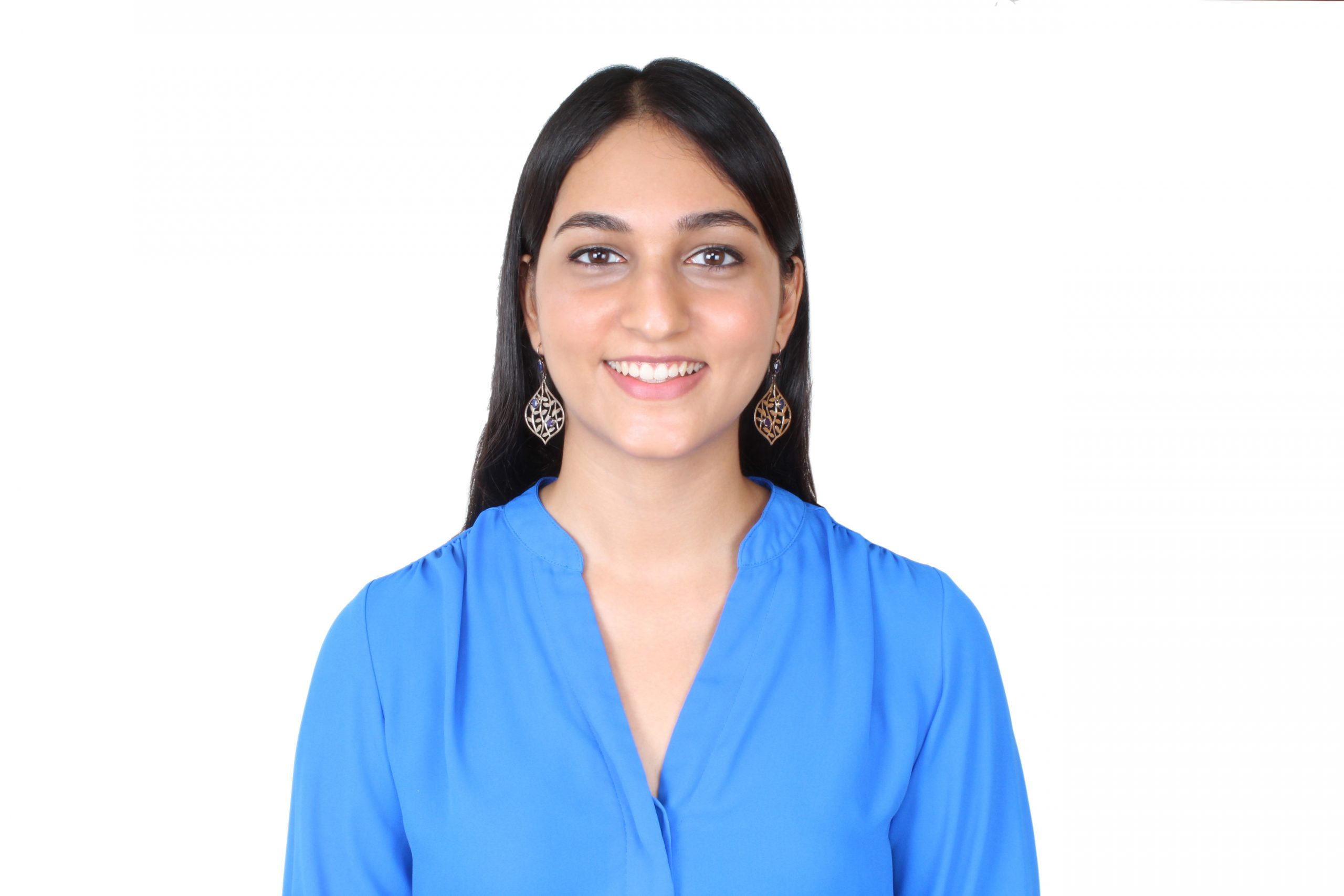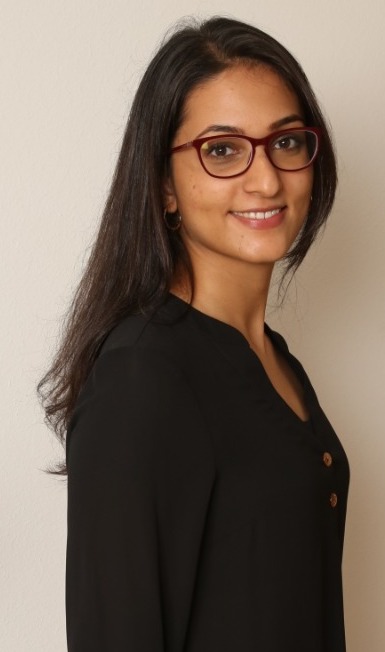
Scholar-Elect Saloni Atal's research focuses on improving mental health outcomes for women in India's poorest areas.
The statistics are astounding, yet there is very little research in India into mental health interventions for groups such as slum-dwelling women, who are most vulnerable to mental health problems and least likely to get access to proper care.
Saloni Atal
Saloni Atal is determined to improve the availability of mental healthcare for women in the poorest communities of India. “Mental healthcare doesn’t get the attention it needs,” she says. “We do not tend to think mental health problems can cause suffering in the same way that illnesses like AIDS can. Years of productivity can also be lost. The statistics are astounding, yet there is very little research in India into mental health interventions for groups such as slum-dwelling women, who are most vulnerable to mental health problems and least likely to get access to proper care. This is important given that women play a key role in the success of future generations.”
She says the interventions that are available in India tend to be bio-medically focused rather than community based, although she adds that the landscape of mental health is shifting. There is now more of a national interest in addressing mental health problems, but this has not yet translated into adequate funding for research, she says.
The focus of her PhD in Psychology, which she begins in the autumn, will be on community mental health workers. She will work with NGOs and lay women from local communities who will be trained to give mental health support. “We lack mental health specialists in India,” says Saloni, “and this is why non-specialists like community health workers can be a huge asset. Lay women also understand the needs of their community at a visceral level. Through my project, I want to empower these women and give them the tools to tackle the community’s mental health problems.”
Broader horizons
Saloni was born in Mumbai, India, and lived there for most of her childhood. That background has heavily influenced her research. “Half the population is homeless and lives in slums. I was a witness to that disparity growing up. It really got under my skin and I am trying through my research to alleviate the suffering,” she says.
Saloni’s family donated money to charity regularly and Saloni, who is an only child, grew up with the idea that it was important to give back to society. Both parents placed a big emphasis on education, with her mother being a teacher. “My mother always encouraged me to take up higher studies. She had dreamt of doing a PhD like my grandfather,” she says.
As her father was a bank auditor, the family moved around a lot and Saloni went to six different schools, the last one being an international school. The school was one of the best academic institutions in the city. Saloni says it really opened her horizons. It was because of the school that she chose to do her undergraduate studies at the University of Hong Kong and because the university offered a generous scholarship. “I wanted a new cultural experience, a place with a different language and customs which would challenge me,” she says. “I wanted to push myself a little bit more. It turned out to be a good decision.” In the end, she says, it was also the reason she applied to the University of Cambridge.
Saloni describes herself as “fiercely academic” and from the age of 15, she knew she wanted to do a PhD. She was interested in psychology and in illnesses that are hard to diagnose, but that interest ran alongside a commitment to poverty alleviation. Starting in school she also did a lot of community work, for instance, teaching maths and English through a charity that educated young children living in deprived areas. It was only later when she started to study psychology that Saloni realised that she could merge the two interests due to the links between poverty and mental ill health.
Alleviating suffering
Her undergraduate dissertation focused on understanding and identifying some of the pathways that link low socioeconomic status with poor mental health and how these might be modified. “I found that psychology might have an important role to play in alleviating suffering caused by poverty,” she says. For the dissertation, she interviewed people from different socioeconomic groups in India and measured their ability to use different coping strategies in different situations. She found that people from lower socioeconomic groups who coped adaptively to their situation had as good health outcomes as those from upper socioeconomic groups. Saloni published her first paper on her findings and did her first conference presentation in 2015.
She was keen to extend her research from a more grassroots level to understand people’s lived experience of poverty. Having already done research at undergraduate level she was ambitious in her aims. “I wanted to do something that would truly make a difference,” she said. She applied to the University of Cambridge, but missed the deadline for scholarships so her parents paid her tuition costs. Her master’s research project focused on finding out what mental healthcare was available to the poorest, discovering where the gaps were and what might be needed to fill them. She did fieldwork across six slum communities in Mumbai, working with local NGOs. Her PhD will continue this work.
Since she finished her master’s last summer Saloni, who is at Christ's College, has been working on publishing her findings and has done several internships in Cambridge, most recently in the Department of Psychiatry. The aim is to get as much research experience as possible so she has all the skills she needs when she starts her PhD.
She found out about the Gates Cambridge Scholarship from her supervisors and thinks it is a good fit with her research. “My research is aligned to the Gates Cambridge mission to improve the lives of others,” she says. “I am excited to be joining a vibrant community and I hope to contribute actively to it.”

Saloni Atal
- Alumni
- India
- 2017 PhD Psychology
- Christ's College
I grew up in the city of Mumbai in India where over half the city lives in "slums". As a person of relative privilege in a country where hundreds of millions live below the poverty line, I am motivated to use my career to drive global development
I completed my MPhil & PhD in Social Psychology at Cambridge (2017-21). As part of my PhD, I examined the gender impacts of a successful NGO in India working to empower women with a view to understanding how their work can be scaled (https://www.muktanganedu.org/).
Motivated by the desire to connect knowledge with practice, I now work at Dalberg Global Development Advisors, an impact focussed strategy consulting firm. My role sits within Dalberg's monitoring, evaluation and learning practice, which advises government agencies, international development organisations, foundations, impact investors, corporations and charities on measuring and managing social impact.
I am immensely thankful to the Trust for their support, without which I would not have been a part of Cambridge's rich intellectual heritage. I had many mentors on my way to this scholarship and I am passionate about paying it forward. You can follow my work and get in touch with me on LinkedIN or Twitter: @Saloni_Atal
Previous Education
University of Hong Kong
University of Cambridge












